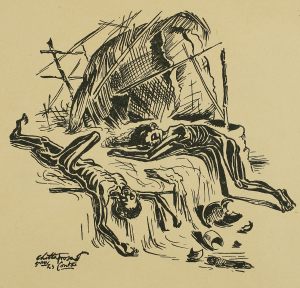This interview concerns the premise of ‘aesthetics’, as a certain regime of identification, which intervenes within the domain of ‘politics’ and ‘history of art’, as configured in the ideations of Jacques Rancière. From this general premise the discussion provokes us to particularly re-configure the concept of ‘modernism’ in art that is not solely defined through simplistic comparisons with ‘post-modernism’. Instead, a re-configuration of ‘modernism’ lets us reconsider the ‘Avant Garde’ project from the methodology of an ‘aesthetic community’ formulated during the French revolution existing still in the texts of the young Marx of the 1840s. The logic of representations in art moves beyond the objective structures of ‘Dialectical Reason’, and instead gets aligned to the aesthetic logic of being spatio-temporally ‘surplus’. Furthermore, it is the aesthetic logic that introduces the heterogeneity of political symbolizations that underlines a multiplicity of process as against a distinct strategy linking theory and practice thus even challenging a global rationality of defining ‘what is art?’ (Art History) and ‘what is politics?’ (Politics). It is based upon these contingent reversals of the signification of the world, of trying to identify the singular points of disruptions connecting to or not connecting to make a whole, that the interview concludes with questions on the multiplicity of possibles.
Articles by Dwaipayan Chowdhury
Dwaipayan Chowdhury is presently a Doctoral candidate with the "International Research Center - Interweaving Performance Cultures" at the Freie Universität, Berlin, Germany.
